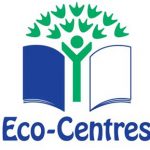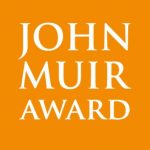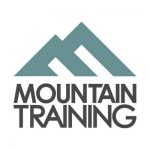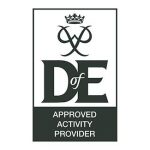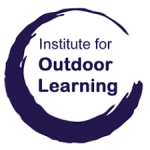English
Outdoor learning at Pendarren can provide opportunities for exploring how beliefs and values are held, expressed and developed. There is an immediacy to being outside that heightens the senses, prompts a sense of connection to the environment and raises the questions of identity, meaning and purpose fundamental to learning about what it means to be. Our outdoor spaces often provide new and inspiring contexts for philosophical exploration and discovery, and serve as a useful resource for personal reflection and development. Times to be still, to look and listen, to touch, to move and to wonder offer rich experiences for discussion about ourselves and our sense of belonging and uniqueness, as well as issues of beauty, truth and goodness. Direct encounters with nature and the world outside the classroom can invigorate learning and encourage superb descriptive writing.
Art
Utilise the beautiful landscapes of the Brecon Beacons to inspire your students. Rugged scenery, pastoral scenes, still life, wild life, rural towns and communities can all be tentatively put on canvas in the field and then completed in our large classroom.
Expressive arts
The use of drama, art, music and dance allows children to experience the world in different ways. The use of expressive arts ensures diversity in the interpretation of places and natural and social events happening outside. Developing an awareness of space and its use as a stimulus for creativity and expression is another reason for taking learning outdoors. Expressive arts outside can offer opportunities for collaborative working on a large scale. Outdoor spaces and places also offer an increased variety of contexts for creating and presenting ideas. Contributing to or creating public performances outdoors can enhance the sense of community and understanding of what it means to belong to a place. There are specific practical skills and problem solving associated with taking expressive arts outdoors, such as projecting voices, making works of art that can withstand the elements and managing musical instruments outdoors.
History
A course at Pendarren can the enrich the KS3 history curriculum especially in regards to the development of Church, state and society in Medieval Britain 1066-1509 and the development of Church, state and society in Britain 1509-1745. With our local area rich in examples of the English/Welsh struggle, churches and caves used in the reformation up to Raglan Castle which was sacked by the Roundheads after being taken from the Royalists.
Sciences
All science subjects have elements that are better taught outdoors. Environmental sciences are particularly relevant and demonstrate principles and practice that cut across biology, chemistry and physics. Students can have a very different learning experience outdoors from that in the classroom or laboratory. Outdoor learning frequently involves teamwork and a different ethos of working in a less structured environment. In sciences this learning can lead to a lifelong interest in a particular aspect of the environment. Science taught outdoors encourages considered thought about our use of resources and the impact of this on the local environment, and about the scale of the natural world. It demonstrates the wonders of the environment and allows learners to learn to interact with the living world in a climate of safety and respect. The learners’ experience of observing class-based theoretical examples can be enhanced through real-world experiences. Many basic scientific concepts can also be demonstrated through games. A simple walk around the school grounds can provide opportunities for learners to experience and observe a range of scientific principles and their applications.
Mathematics
In order to develop deep mathematical understanding and secure numerical skills, children and young people need to engage with maths in meaningful contexts where abstract mathematical concepts can be applied to real-life situations. Taking maths into the outdoors provides an ideal vehicle for this approach. Numbers are tools people use to make their lives less complicated outside or in. Children and young people benefit from learning maths outdoors through having access to limitless mathematical resources and contexts. There are increased opportunities for dialogue and developing mathematical language and concepts when working practically with others. Pendarren offers the ideal opportunity to do this in a wide range of our activities.
Citizenship
We have hosted Haringey’s Youth Councils for meeting and teambuilding events as well as being the ideal location for discussion groups and school councils to bond together and work collaboratively.
Design and Technology
Undertaking design and technology outdoors provides opportunities to investigate and experiment with the earliest and latest in human technology, making connections between our past and present. Being outdoors aids reflection on the designs, materials and processes that are used and which influence all our lives. The links between the planet and consumption of finite resources can be made through bushcraft. Using plants that have different purposes, such as medicinal or dyes for clothing, can help embed sustainable principles when explicitly taught and demonstrated. Pendarren’s grounds and outdoor spaces benefit from design projects such as building window boxes, animal homes, outdoor ovens, seating, etc. Interpretation of the grounds and signage is a design process.
Social subjects
Real-world learning outdoors is a fundamental experience all young people need in order to have a good understanding of past, present and future societies, places and environments. Experiencing the sights and sounds of the house grounds, outdoor space and local welsh area can help students to become more connected to the community. It is an opportunity for learners to meet and talk to people in context and experience different points of view. When studying local or national issues the subject may become more relevant and meaningful and make greater sense. Using local outdoor spaces and engaging with their sights and sounds enables pupils to empathise with past or present communities and environments. Enterprising projects that have an element of outdoor work foster community links. Developing social studies skills such as map making becomes purposeful and relevant outdoors. It improves learners’ spatial and temporal sense of place in the world through learning experientially how to locate, explore and link features and places locally and further afield.
Languages
Using Pendarren as a base for learning Languages can add an extra dimension to the experience. Learning new vocabulary and expressing themselves whilst being pushed outside of their comfort zone can imbue a whole new level of understanding. We even have staff who can instruct activities in French and German!
Geography
Pendarren is the ideal place to broaden the geography curriculum at KS3. Use of the Brecon Beacons National Park is an ideal venue for both physical and human geographical studies especially when covering the following areas from the national curriculum.
Place Knowledge
Human and physical geography
- understand, through the use of detailed place-based exemplars at a variety of scales, the key processes in:
- physical geography relating to: geological timescales and plate tectonics; rocks, weathering and soils; weather and climate, including the change in climate from the Ice Age to the present; and glaciation, hydrology and coasts
- human geography relating to: population and urbanisation; international development; economic activity in the primary, secondary, tertiary and quaternary sectors; and the use of natural resources understand how human and physical processes interact to influence, and change landscapes, environments and the climate; and how human activity relies on effective functioning of natural systems
Geographical skills and fieldwork
- build on their knowledge of globes, maps and atlases and apply and develop this knowledge routinely in the classroom and in the field
- interpret Ordnance Survey maps in the classroom and the field, including using grid references and scale, topographical and other thematic mapping, and aerial and satellite photographs
- use Geographical Information Systems (GIS) to view, analyse and interpret places and data
- use fieldwork in contrasting locations to collect, analyse and draw conclusions from geographical data, using multiple sources of increasingly complex information.
We are looking at using GPS technologies to help with the mapping and orientation of our grounds and local area.


